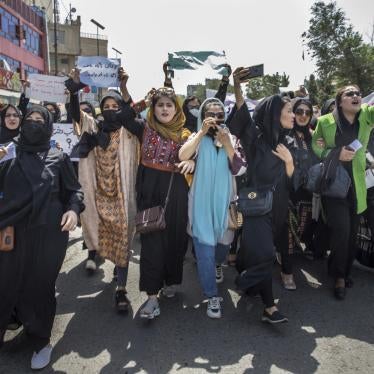“The situation is getting worse every day,” Ahmad, a former journalist in Herat, Afghanistan, told me. “I don’t think anyone can afford to buy enough food anymore.”
Afghanistan has been in the throes of an economic crisis for more than two years, after donors cut foreign funding in response to the Taliban takeover in 2021 and suspended Afghanistan’s Central Bank from the international system. The Taliban's violations of women’s rights in areas including employment, education, and freedom of movement have exacerbated the situation, intensifying its effect on women and girls. The humanitarian response is incapable of addressing the crisis, especially because levels of humanitarian aid have decreased since 2023 as donors’ reduced aid in response to the Taliban’s actions.
According to the United Nations, in 2024, 23.7 million people – more than half of the country's population – will need humanitarian assistance. The statistics are startling: 69 percent of people do not have enough food; 67 percent have trouble accessing water, worsened by a prolonged drought linked to climate change; the economy has contracted by 27 percent; and only 40 percent of the population has access to electricity. On top of this, the healthcare system is on the verge of collapse.
Women are bearing the brunt of the crisis. Alia, who used to work at a beauty salon in Kabul before the Taliban ordered their closure, told me: “After losing my job, I have no other means to afford my daily expenses. It’s obvious that women in Afghanistan are suffering the most in losing their rights and means to survive.”
In its 2024 humanitarian response plan for Afghanistan, the UN has requested $3 billion to address the growing crisis but has received less than 3 percent of the required funds.
Donors need to up their response to the appeal, but aid will not be enough on its own. Governments should support measures to normalize payments and other transactions through Afghanistan’s banking system; restore public services in the areas of water management, electricity, and agriculture; address income-related poverty; and improve climate adaptation.
They also need to work in a coordinated and unified way to ensure the Taliban are held accountable for their ongoing violations of the rights of women and girls.








